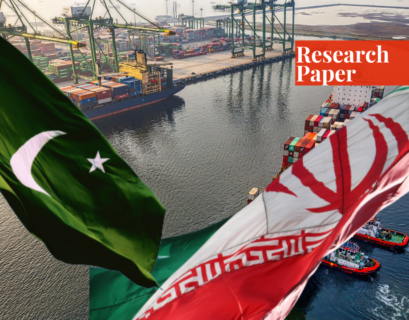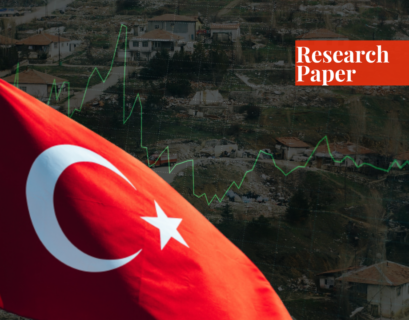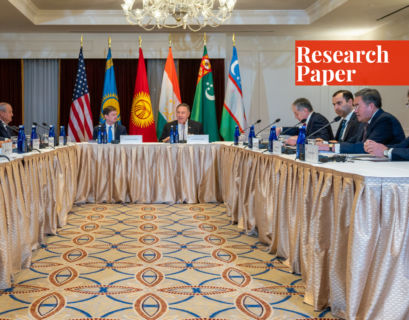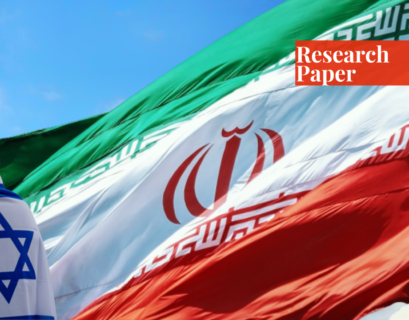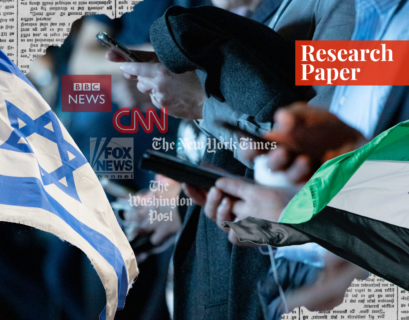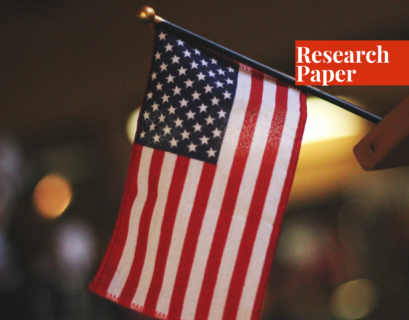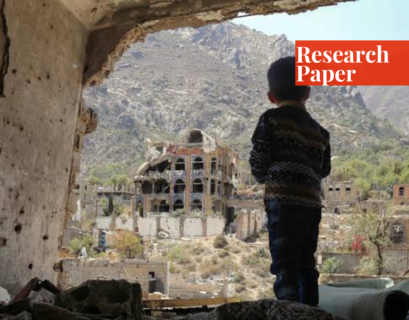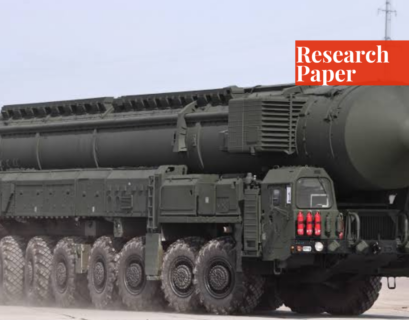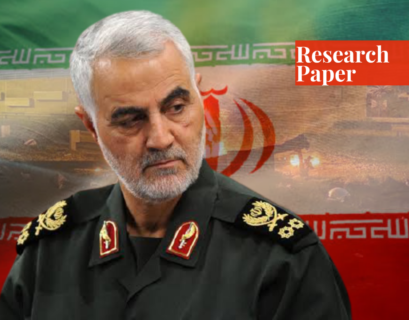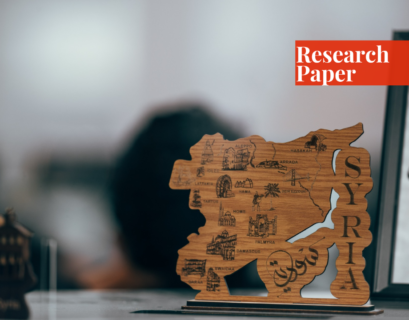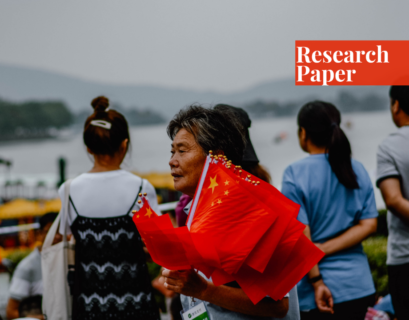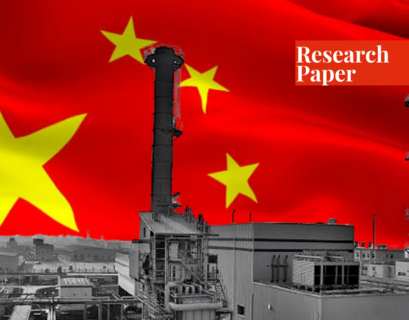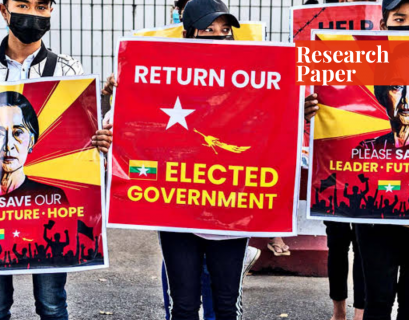The Gwadar Port of Pakistan vs the Chabahar Port of Iran: Analyzing the Changing Dynamics
China has exhibited a deep interest in developing the Gwadar Port of Pakistan, under the China–Pakistan Economic Corridor (CPEC), for the enhancement of its strategic and economic benefits, while India is investing in the Chabahar Port under the tripartite Preferential Trade Agreement (PTA) with Iran and Afghanistan, with the drive to counter China’s growing presence in the region.
Both ports are situated at the international energy trading route and provide connectivity to different regions of the world including Central Asia, the Middle East, Africa and Europe. Such equalizing behavior of both states is not just causing problems for them but also for the neighboring states such as Afghanistan, Iran, and Pakistan, in this regard, which are the key stakeholders in the construction of these ports.
The authors, Ms. Kinza Shah and Mehwish Kayani, look into the geostrategic and geo-economic importance of both ports. This paper also explores the stances given by the major states of the …
The Economic Growth in Turkey Post the 2000-01 Turkish Financial Crisis
Although the two consecutive financial crises of 2000 and 2001 shook Turkey’s economy to the core, they also paved the way for major economic reform.
Against that backdrop, the author, Nimra Dawood, reflects on the remarkable economic development witnessed in Turkey shortly after the financial crises.
Foreign Policy in Central Asia: Discontinuing the Soviet Legacy?
In a world motivated by soft power, states steer and adapt their foreign policies according to the evolving nature of global affairs.
Central Asian states are no exception to this reality, especially since they are motivated by geostrategic and geoeconomic interests.
The shifting world order presents both interests and risks, and hence they must carefully design their foreign policies – and hedge their bets. Image credits: U.S. Department of State | Flickr
Iran-Israel Relations & Russia’s Mediation Diplomacy
The research paper focuses primarily on the different phases of diplomatic relations between Iran and Israel – two strategic states of the Middle East.
The author highlights the strategic role of Russia as a mediator between the two states to show how in order to pursue their national interests, states play out their part in international politics with direct bearing on other states at the national and international level.
Pro-Israel Media Coverage of the Israel-Palestine Conflict
Being one of the longest conflicts in the Middle East, the Israel-Palestine conflict has remained in the eye of the international media. The author notes that the news coverage of the conflict has never been neutral. Through an analysis of the news coverage of the BBC, The New York Times, The Times of India, and Al-Jazeera, she reveals how misrepresentation, framing, linguistic determinism, and media manipulation can be observed in the news coverage of the Israel-Palestine conflict. While this media manipulation has benefited them and served their interests, it has impacted how the audience of specific media outlets views the conflict.
US Interests in the Middle East: Foreign Policy Objectives & Failures
To incorporate the Middle East in its sphere of influence, the United States has either directly or indirectly intervened in the Middle East. The author notes that America’s foreign policy in the Middle East included meddling in the political affairs of many countries in the region, and installing and assisting in radicalization and sectarianism just for its own geostrategic and economic interests. This approach, along with the Israel-Iran rivalry and the Shia-Sunni rivalry between Saudi Arabia and Iran, has prevented peace from being established in the region. Ultimately, the Middle East has turned into a battleground for sectarian conflicts, proxy wars, and instability.
The Civil War in Yemen and the Violation of Children’s Rights
The ongoing civil war in Yemen has aggravated the plight of Yemeni children. Despite the state being a signatory of the UN Convention on the Rights of the Child, the government of Yemen has completely failed to preserve the basic rights of the children. The humanitarian crisis in Yemen has put the physical and mental health of an entire generation at stake. The author, Farhan Ijaz, notes that the warring parties have committed grave human rights violations, deprived the children of their right to an education, and forced them to take up arms. Furthermore, due to the war, the number of internally displaced children, the outbreaks of infectious diseases, child marriages, and child labor in Yemen have increased at an unprecedented rate.
The Srebrenica Genocide During the Bosnian War
It’s been 26 years since the Bosnian War stole the lives of about 250,000 Bosniaks and displaced around 2.5 million people. The perpetrators of the Srebrenica Genocide were the Bosnian Serbs and Yugoslavs, aided by the international community’s passivity.
The author reports the events that took place and the actors involved in the horrendous Bosnian Genocide.
The Russian S-400 Missile Deal with India: Implications for the Region
Technology has played an important role in shaping international politics. During the Cold War, both superpowers, that is, the Soviet Union and the United States were involved in the strategic rivalry and the arms race, with both trying to undermine the other’s defense capabilities.
Russia has built many surface-to-air batteries and has now developed highly advanced missile defense systems such as the S-400 missile defense system. During the 2018 summit in New Delhi, India signed a deal with Russia for 5 units of the Russian S-400 defense system which, the author believes, can negatively affect the strategic stability of South Asia.
The US’s Assassination of General Qasem Soleimani: Causes, Impacts, and Legality
On 3rd January 2020, the United States killed top Iranian general Qasem Soleimani. The assassination of Soleimani is attributed to the historic rivalry between Iran and the US, the US agenda to lower the influence of Iran in the region, and Trump’s aggressive and dominant personality.
His assassination has a huge impact not only on the politics and relations between Iran and the US but also in the region. This research paper seeks to find the reason for the US’s assassination of Qasem Soleimani.
Sino-US Trade War During Trump’s Presidency
This article is aimed at explaining the fractured relationship between China and the United States during Trump’s term in office. The author explores different conflicts of this era which include the trade war and the 5G race, among others.
The future of Sino-US relations depends on how respective administrations will steer the conflict.
The Contemporary Challenges Facing the Political System in Syria
The Syrian Arab Republic has a complicated stratification of ethnic groups, and strict constitutional boundaries for voting, the nomination of political parties, and elections.
Equally confusing is the distribution of power, with the presidential autonomous structure of the political system.
This system serves as an example of one of the most complex and intricate forms of democracy in the world, leading to a lack of options for any new political stakeholders to gain power.
Keeping that complexity in sight, this paper identifies and analyses the contemporary political challenges that are being faced by the political system in Syria.
CPEC: China’s Soft Balancing Against the United States
The paper deals with China’s ‘soft balancing’ in Pakistan through the China Pakistan Economic Corridor (CPEC) and explains how such has helped limit the influence of the United States in Pakistan after 2015. The author argues that the CPEC is a step towards a more Beijing-led regional order —part of Xi’s Belt and Road Initiative (BRI) and greater ambition of extending his country’s influence — which has been working in China’s favor.
How China Became an Economic Superpower?
China’s economic transformation in the last 40 years has had a huge impact on the global economy. This unprecedented economic scenario has attracted a lot of interest, particularly from developing countries looking to emulate China’s success. The author considers the infant industry model to explain China’s rapid industrialization and subsequent economic rise and explains how China’s long-term approach and facilitative policies have enabled local industries to become competitive worldwide. It also discusses what countries like Pakistan can learn from the Chinese experience with regards to strengthening their industrial base.
Should Pakistan Recognize Israel?
In the wake of the recent normalization of ties between varying Muslim states and Israel, Pakistan was rumored to be following suit. This stirred a debate within Pakistan – with people questioning the pro-Palestinian stance, and the rejection of Israel. The author discusses how Pakistan should continue to maintain the traditional policy towards Israel, and how it would be inadvisable to pursue normalization for limited gains.
Conflict Resolution: Ending the Rohingya Crisis
The paper discusses the inequities that have continued to exist within Myanmar’s infrastructure since the colonial era. The unrestrained hostility among Myanmar’s ethnicities has caused one of the world’s largest refugee crises. The author presents methods of conflict resolution that may prove effective in resolving the Rohingya conflict.
United States vs Russia: An Unabating Security Dilemma
The long history of hostility and rivalry between Russia and the United States has internalized mutual suspicion. US political actors use the rhetoric of insecurity and ‘attack on democracy’ by Russia, while Putin builds on the anti-American sentiment. The author discusses how the United States is likely to keep considering Russia a threat due to the ongoing security dilemma, perceptions of identity and security, and implications of human rights violations.
